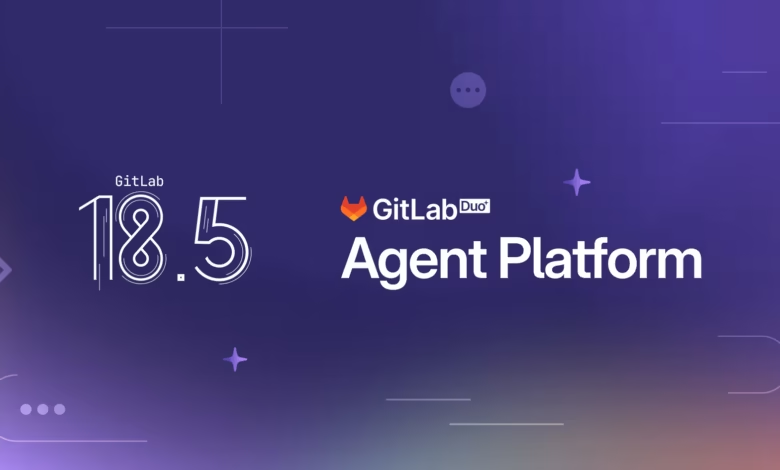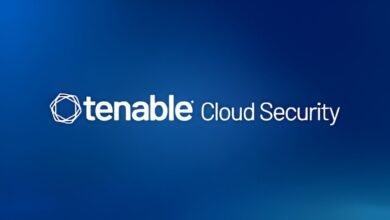GitLab 18.5: AI-Powered Features Accelerate Software Development

▼ Summary
– GitLab 18.5 introduces a reimagined panel-based interface that keeps the AI assistant, GitLab Duo Chat, always visible and accessible across the platform.
– New specialized agents automate vulnerability triage and backlog management, transforming manual workflows into intelligent, AI-powered processes.
– The release includes an extensible agent catalog that integrates popular external AI tools like Claude and OpenAI Codex as native GitLab agents.
– Enhanced security features help prioritize real risks by identifying exploitable vulnerabilities and distinguishing active from expired secrets.
– Self-hosted capabilities for the GitLab Duo Agent Platform advance to beta, allowing organizations to run AI agents entirely within their own infrastructure.
The latest GitLab 18.5 release introduces powerful AI-driven capabilities designed to streamline software development workflows and enhance security management. This update directly addresses the overwhelming complexity development teams face by embedding intelligent automation throughout the platform. GitLab 18.5 calms this chaos by integrating specialized agents, refining security insights, and delivering a redesigned interface that keeps AI assistance constantly accessible.
Development teams frequently struggle with fragmented workflows, juggling planning backlogs, security triage, code reviews, and CI/CD pipeline issues. According to GitLab CEO Bill Staples, this constant context switching consumes valuable hours that could otherwise fuel innovation. The newest version confronts these challenges head-on with a panel-based user interface that presents data contextually and ensures the GitLab Duo Chat remains visible across all platform sections.
Central to this release are purpose-built agents that automate vulnerability management and backlog planning. These tools integrate smoothly with agentic workflows, while GitLab’s security features now better pinpoint exploitable vulnerabilities, differentiate active from expired credentials, and perform scans exclusively on modified code to preserve developer momentum.
A modernized user experience offers quick, universal access to GitLab Duo. The panel-based layout displays information side-by-side, so when an issue is selected from the list, its details appear in an adjacent panel. Users can also open the GitLab Duo Chat panel on the right as an on-demand assistant, enabling contextual questions and instructions from any location within GitLab.
Key updates to the GitLab Duo Agent Platform include:
The Security Analyst Agent transforms manual vulnerability triage into automated, intelligent workflows. It orchestrates multiple security tools, enforces policies, and designs custom flows for recurring tasks. Security teams receive enriched data—such as CVE specifics, static reachability analysis, and code flow details—and can dismiss false positives, confirm threats, adjust severity, or create remediation issues through conversational AI.
GitLab Duo Planner brings order to backlog chaos by serving as a contextual teammate. Unlike generic AI assistants, it possesses deep knowledge of GitLab’s planning workflows and Agile frameworks, helping teams balance effort, risk, and strategic priorities without constant context switching.
An Extensible Agent Catalog now incorporates popular AI tools like Claude, OpenAI Codex, Google Gemini CLI, Amazon Q Developer, and OpenCode as native GitLab agents. These can be discovered, configured, and deployed via the same unified catalog used for built-in agents, with foundational agents syncing automatically across organizational catalogs.
For organizations with strict data governance needs, the Self-hosted GitLab Duo Agent Platform moves from experimental to beta. This allows companies to run AI agents and workflows entirely within their own infrastructure, meeting data sovereignty regulations without sacrificing AI capabilities.
GitLab 18.5 also introduces smarter, faster security features that prioritize genuine risks and maintain developer workflow integrity. These enhancements reflect GitLab’s commitment to embedding security directly into development processes, delivering precision and speed without disruption.
Static Reachability Analysis, currently in limited availability, provides library-level precision by determining whether vulnerable code is actually invoked in an application, not merely present in its dependencies.
Secret Validity Checks offer clearer insights into exposed secrets. For GitLab-issued security tokens, the system automatically identifies active versus expired secrets directly within the Vulnerability Report, enabling teams to concentrate remediation on legitimate threats.
Custom Rules for Advanced SAST empower AppSec teams to define atomic, pattern-based detection logic tailored to their organization’s unique security concerns, while still leveraging GitLab’s curated ruleset as a foundation.
Advanced SAST now supports C and C++, languages widely used in embedded systems development, expanding GitLab’s security coverage.
Diff-based SAST scanning accelerates analysis by focusing exclusively on code changes within merge requests. This reduces redundant scanning and surfaces results pertinent to ongoing development work.
To simplify API configurations, a new web-based interface for managing Maven Virtual Registries offers package administrators and platform engineers a more visual and intuitive alternative to complex manual setups.
Beyond introducing new features, GitLab 18.5 emphasizes flexibility and user control. GitLab Premium and Ultimate subscribers can immediately access these capabilities on GitLab.com and self-managed instances, with availability for GitLab Dedicated customers anticipated next month. The GitLab Duo Agent Platform remains in beta, inviting organizations to explore how full-context AI can reshape software development.
(Source: ITWire Australia)





